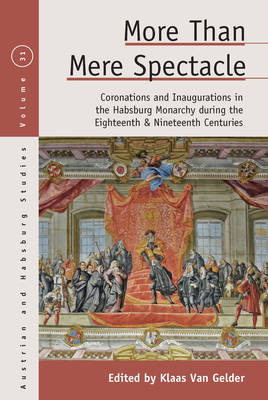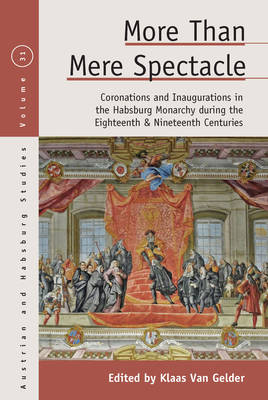
- Retrait gratuit dans votre magasin Club
- 7.000.000 titres dans notre catalogue
- Payer en toute sécurité
- Toujours un magasin près de chez vous
- Retrait gratuit dans votre magasin Club
- 7.000.0000 titres dans notre catalogue
- Payer en toute sécurité
- Toujours un magasin près de chez vous
More Than Mere Spectacle
Coronations and Inaugurations in the Habsburg Monarchy During the Eighteenth and Nineteenth Centuries
Description
Across the medieval and early modern eras, new rulers were celebrated with increasingly elaborate coronations and inaugurations that symbolically conferred legitimacy and political power upon them. Many historians have considered rituals like these as irrelevant to understanding modern governance-an idea that this volume challenges through illuminating case studies focused on the eighteenth- and nineteenth-century Habsburg lands. Taking the formal elasticity of these events as the key to their lasting relevance, the contributors explore important questions around their political, legal, social, and cultural significance and their curious persistence as a historical phenomenon over time.
Spécifications
Parties prenantes
- Editeur:
Contenu
- Nombre de pages :
- 338
- Langue:
- Anglais
- Collection :
- Tome:
- n° 31
Caractéristiques
- EAN:
- 9781789208771
- Date de parution :
- 02-02-21
- Format:
- Livre relié
- Format numérique:
- Genaaid
- Dimensions :
- 152 mm x 229 mm
- Poids :
- 621 g

Les avis
Nous publions uniquement les avis qui respectent les conditions requises. Consultez nos conditions pour les avis.





